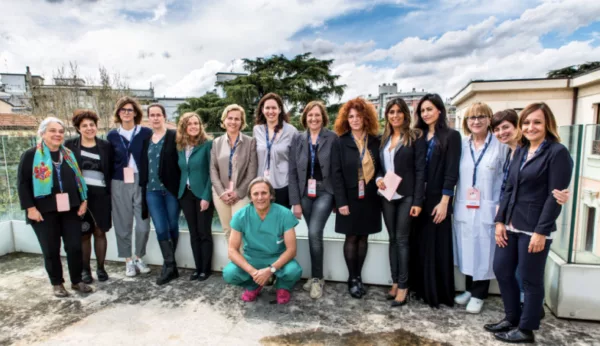Surgery in the 3rd Millennium: The future is female
The first edition of the congress "Surgery in the 3rd millennium: The future is female" was held in Ospedale San Rafaelle Turro in Milan on 12-13th April 2018.
Urology has historically been a male-dominated surgical specialty, and although the number of female urologists is growing worldwide, they still represent a minority particularly in leadership and academic positions.
The first edition of the congress "Surgery in the 3rd millennium: The future is female" was held in Ospedale San Rafaelle Turro in Milan on 12-13th April 2018. Directed by Prof. Franco Gaboardi, the format of the congress included live laparoscopic, robotic and endourological surgeries performed exclusively by women. Although there is growing evidence that female urologists are being represented in all urological specialties, it is equally true that women are often under-represented in live-surgery meetings which are not focused on female or functional urology.
The procedures performed during the two-day congress were outstanding and educational with special emphasis on surgical tips and tricks. The discussions also reflected a dynamic interaction with the audience. During the first day, we assisted in a 3D laparoscopic partial nephrectomy performed by Prof. Dr. Maria J. Ribal and Dr. Mireia Musquera, both from Barcelona. Dr. Silvia Secco (IT) performed a Robotic-Assisted Radical Prostatectomy (RALP), demonstrating the retzius-sparing technique.
In the afternoon session, Dr. Loredana A. Romano (IT) performed a ProACT implant for urinary incontinence after radical prostatectomy therapy, while Dr. Piera Bellinzoni of the Ospedale San Raffaelle Turro showed some tricks for percutaneous nephrolithotomy (PNL). The second featured 3D laparoscopic radical prostatectomy with bilateral pelvic lymphadenectomy performed by Dr. Virginia Varca (IT) and RALP with retzius-sparing technique performed by Dr. Karen Frances (BE).
Beside the surgeries we organised several talks regarding topics such as the role of women in medicine and science, which was presented by Dr. Sveva Avveduto. The only presentation performed by a male urologist was on pelvic pain and decompression surgery of the pudendal nerve, given by Prof. Tibet Erdogru (TR). Also noteworthy was the participation via Skype of well-known prostate cancer expert Dr. Stacy Loeb (USA) who gave a very interesting presentation regarding active surveillance in prostate cancer.
The atmosphere during the meetings was cordial and pleasant, and the participants shared their impressions with the surgeons and speakers during a typical Italian dinner organised at the end of the congress.
In my view, this congress contradicted the prevailing gender stereotypes and opened another door of opportunity for female urologists to show their surgical skills in different areas. Besides being educational with diverse topics from a scientific point of view, this meeting provided inspiration to female medical students, young residents and urologists.
The next edition in 2019 is widely anticipated and promises another exciting programme.



